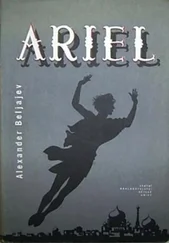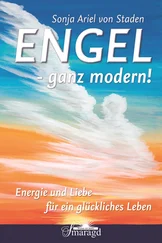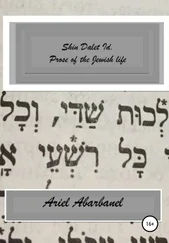Ariel Toaff - Blood Passover
Здесь есть возможность читать онлайн «Ariel Toaff - Blood Passover» весь текст электронной книги совершенно бесплатно (целиком полную версию без сокращений). В некоторых случаях можно слушать аудио, скачать через торрент в формате fb2 и присутствует краткое содержание. Жанр: Религиоведение, на английском языке. Описание произведения, (предисловие) а так же отзывы посетителей доступны на портале библиотеки ЛибКат.
- Название:Blood Passover
- Автор:
- Жанр:
- Год:неизвестен
- ISBN:нет данных
- Рейтинг книги:3 / 5. Голосов: 1
-
Избранное:Добавить в избранное
- Отзывы:
-
Ваша оценка:
- 60
- 1
- 2
- 3
- 4
- 5
Blood Passover: краткое содержание, описание и аннотация
Предлагаем к чтению аннотацию, описание, краткое содержание или предисловие (зависит от того, что написал сам автор книги «Blood Passover»). Если вы не нашли необходимую информацию о книге — напишите в комментариях, мы постараемся отыскать её.
Blood Passover — читать онлайн бесплатно полную книгу (весь текст) целиком
Ниже представлен текст книги, разбитый по страницам. Система сохранения места последней прочитанной страницы, позволяет с удобством читать онлайн бесплатно книгу «Blood Passover», без необходимости каждый раз заново искать на чём Вы остановились. Поставьте закладку, и сможете в любой момент перейти на страницу, на которой закончили чтение.
Интервал:
Закладка:
The efforts expended to cause problems for the inquisitorial machinery set up at Trent enjoyed an initial success on 12 October 1475, when Sixtus IV himself, at the request of the Jews gathered at Rovereto, instructed Hinderbach to release the incarcerated women and children, said to be confined in precariously unhealthy conditions, and whom Sixtus believed to be innocent [678] "Verum, exponitur nobis pro parte ludeorum, quod illic adhuc nonnulli pueri et femine, de quorum innocentia nullum dubium esse dicitur, detineantur infirmi, non absque vite, propter infirmitatem huiusmodi, periculo, carcerati. Hortamur in Domino fraternitatem tuam, ut, si carcerati predicti circa eiusdem pegni negocium culpa carent, eosdem relaxare, et operam suam etiam apud ducem ipsum, si necessarium fuerit, in hoc efficaciter impartiri velit, ut pro iustitie debito relaxentur" (cfr. Sh. Simonsohn, The Apostolic See and the Jews . III: Documents, 1464-1521, Toronto, 1990, p. 1232). See also W.P. Eckert, Aus den Akten des Trienter Judenprozesses , in P. Wilpert, Judentum im Mittelalter , Berlin, 1966, p. 300.
. De' Giudici, for his part, invited Giovanni da Fondo, the notary at the Trent trials, to appear before him to testify as a witness. The notary’s refusal was clear and immediate. Giovanni in fact maintained that he feared for his life: the Jews at Rovereto would not hesitate to have him murdered [679] Cfr. Divina, Storia del beato Simone da Trento , cit., voI. II, pp. 112 -113, n. 6.
.
In the meantime, Fürstungar, alias Salomone da Composampiero, reaching Val Lagarina together with the apostolic commissioner, abandoned Rovereto immediately to travel to Verona in an attempt to procure the services of Gianmarco Raimondi, one of the best lawyers in the city. Having obtained an appointment, Fürstungar explained to the Veronese jurist, Raimondi, that, in the cause of the Jews of Trent, he could count on the support of illustrious Roman prelates, and that even the apostolic commissioner himself had only arrived in the area thanks to the considerable financial commitments assumed by the German-origin Jewish community to ensure the commissioner’s very appointment before the Pope. Raimondi was offered a fee at the rate of three florins a day to overcome his foreseeable hesitation, but to no avail: Raimondi had no intention at all of taking the case [680] The lawyer, Raimondi, hastened to write to Hinderbach a few days later, on 12 October 1475, informing him of Salomone Fürstungar’s report during the meeting. "Nonnulli Judeorum hic commorantium, oblato non parvo pondere auri, patrocinium meum habere quaesierunt et dietim sedulo aureos tres pollicebantur, subjungentes quod apud Summum Pontificem favores plurimos Praelatorum consequebantur et Delegatum Apostolicum impetrasse magna exposita pecunia. Haec et alia verba, quae mihi somnia videbantur, percepi a Salomone, hic commorante". The letter was published by Bonelli ( Dissertazione apologetica , cit., p. 145) and is reproduced by Divina ( Storia del beato Simone da Trento , cit., voI. II, p. 105).
.
At Trent, Israel Wolfgang had an unexpected meeting. Waiting for him one morning under the portico of Samuele’s bank, was a German Jew whom Wolfgang had met some time back, in his uncle’s house at Erlangen, near Nuremberg. The German Jew told him that he, too, had converted to Christianity, taking the Christian name of Giovanni Pietro in baptismal deed, registered at Mantua, but that he had remained faithful in one way or another to the faith of his fathers. To allay suspicion, he told people that he had been moved to visit Trent by the miracles of little Simon, but had, in reality, been sent by the general headquarters of the German Jews at Rovereto to make contact with
p. 219]
Israel Wolfgang. In particular, he had been instructed on his mission in Trent by no less a personage than the usual Salomone da Piove, and with him, Aronn da Castelnoveto [681] In this regard, see Divina, Storia del beato Simone da Trento , cit., voI. II, pp. 114-117; Po-Chia Hsia, Trent 1475 , cit., pp. 99-100.
. The latter was to be tried and condemned in 1488 for contempt for the Christian religion, together with the other heads of the Ashkenzi community of the Duchy of Milan [682] On the 1488 trial of Samuele, a resident of Castelnoveto, and the other German Jews living in the Duchy of Milan, see Simonsohn, The Jews in the Duchy of Milan , cit., voI. II, p. 897; A. Antoniazzi Villa, Un processo contro gli ebrei nella Milano del 1488 , Milan, 1986, pp. 107-108.
.
The Mantuan convert known as “Giovanni Pietro” asked Israel Wolfgang to place him in contact with the women detainees and to obtain useful information from them; he moreover wished to obtain first-hand news about the goings-on at Buonconsiglio. Promptly satisfied, he [Giovanni Pietro] was successful in meeting secretly with Brunetta, Samuele of Nuremberg’s obstinate widow, and asked her whether she and the other prisoners had been subjected to torture, despite the intimations of the commissioner and the Pope [683] Cfr. Divina, Storia del beato Simone da Trento , cit., voI. II, pp. 116-117.
. But there was not much time left. Not even to organize one last desperate attempt to arrange for the women’s escape and conveyance to safety. The meeting between Israel Wolfgang and Giovanni Pietro da Mantova, the German Jew from Erlangen, was on 18 October. Two days later, the Trent trials were officially re-opened, on Hinderbach’s initiative, with the explicit consent of the court at Innsbruck.
One week after that, Israel Wolfgang was already in trouble, betrayed by Lazzaro da Serravalle and Isacco da Gridel di Vedera, Angelo da Verona’s servants, as well as by Mosè da Franconia, teacher of Tobias’s children, and Joav da Ansbach, the ignorant scullery boy in Tobias’s kitchen, who, tortured and confessing, out of envy or spite, had accused the young Saxon painter of responsibility for little Simon’s murder [684] Cfr. ibidem, p. 135.
.
Israel Wolfgang was arrested on 26 October while dining at the castle, calmly and with a good appetite, with the bishop’s officials and courtiers. Immediately transferred to the prisons of the Buonconsiglio, he was subjected to an exuberant dose of torture to induce him to say whatever he knew or imagined.
The other defendants were condemned and publicly executed between 1 December 1475 and 15 January of the following year. At the foot of the scaffold, Mosè of Franconia and the coarse Joav both converted to the faith in Christ, in the hope of alleviating their own suffering [685] Cfr. ibidem, pp. 57-60.
.
Wolfgang was, deliberately, the last to be executed, condemned by Giovanni Hinderbach’s tribunal on 19 January 1476.
p. 220]
Offended and feeling betrayed, Hinderbach made no exception of any kind for Wolfgang, and punished him much more harshly than even the principal defendants on trial; his body, cruelly broken on the wheel, was devoured by animals. The young Saxon painter and miniaturist, "who said that he was less than twenty five years old, although he looked at least twenty nine", faced martyrdom without batting an eye, dying a death which, both in his eyes and from the point of view of that German Judaism to which he belonged, he had been taught to court to sanctify the name of God ( 'al qiddush ha-Shem ).
His death was accompanied by unflaggingly indecorous anti-Christian grimaces and a scornful profession of polemical faith. The voluntary sacrifice of Israel Wolfgang, the boy from Brandenburg, counter-balanced, or, more exactly, flanked, the involuntary sacrifice of little Simon, in a holy tragedy in which the basic elements of the plot, cruel and bloody, had been composed centuries before, in Hebrew and Yiddish, in German and in Latin, in the valleys washed by the muddy waters of the Rhine and the Main, the Rhône and the Danube, the Adige and the Ticino, where it was said that the god of the rivers claimed their innocent victims every year.
Читать дальшеИнтервал:
Закладка:
Похожие книги на «Blood Passover»
Представляем Вашему вниманию похожие книги на «Blood Passover» списком для выбора. Мы отобрали схожую по названию и смыслу литературу в надежде предоставить читателям больше вариантов отыскать новые, интересные, ещё непрочитанные произведения.
Обсуждение, отзывы о книге «Blood Passover» и просто собственные мнения читателей. Оставьте ваши комментарии, напишите, что Вы думаете о произведении, его смысле или главных героях. Укажите что конкретно понравилось, а что нет, и почему Вы так считаете.












